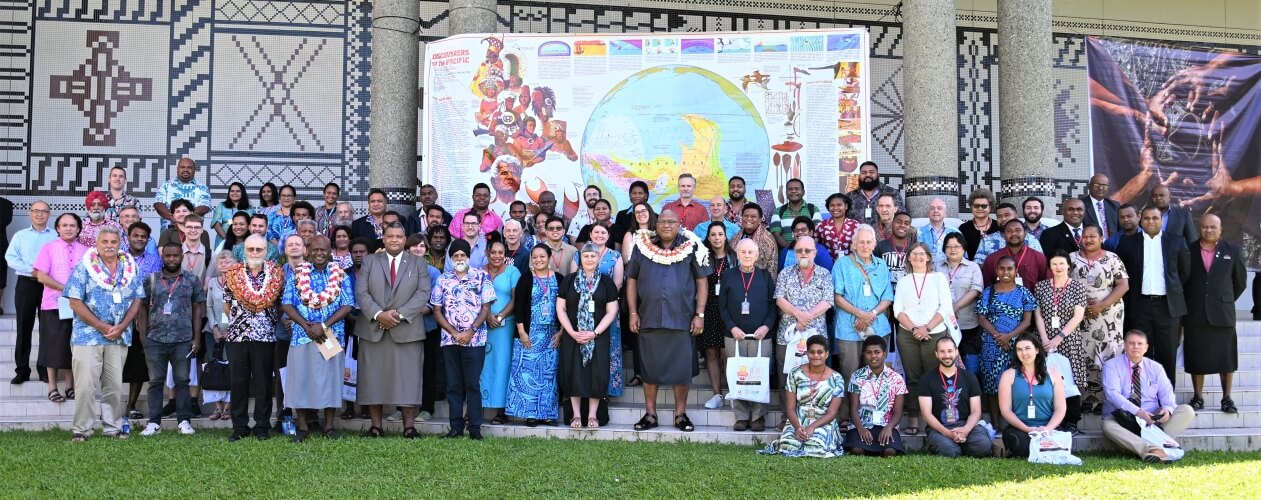Related News

The weeklong 10th International Lapita Conference, Weaving the Past, Present and the Future, started on a high this morning at The University of the South Pacific’s (USP) Japan-Pacific ICT Centre in Suva.
The conference, co-organised by the Fiji Museum, USP and the Ministry of I-Taukei Affairs, Heritage and Arts, focuses primarily on the discipline of archaeology, which studies the material remains left behind by people in the distant or more recent past.
USP’s Deputy Head of the School for Law and Social Sciences (SoLaSS), Dr Nicholas Halter, said the conference attracted over 70 participants from around Fiji, the Pacific and from around the world, and the number of registrations is expected to increase over the next four days.
He added that participants could expect exciting highlights about this conference with multiple interactive presentations and dissemination of different topics. The panels would also look at how populations have changed in places like Fiji in response to varying impacts of climate change.
“The first Lapita Conference was held in 1988. This event brings together archaeologists, people working in various museums, Linguists, Historians, and anyone interested in the history and heritage of Fiji and other Pacific Islands,” Dr Halter said.
President of the Republic of Fiji, His Excellency Ratu Wiliame Maivalili Katonivere, while opening the conference this morning, stated that reaching the tenth (10th) series of this conference is an achievement that should be applauded, and the theme best captures the essence of this milestone.
“I would like to highlight the plight and existence of our Melanesian community in Fiji. The Solomon Islands and Ni-Vanuatu descendants sadly were forced off their lands and villages to work in our plantations during the blackbirding period by colonists. They have settled in various locales around the country and have called Fiji their home for generations. While their story was heartbreaking, their coming to Fiji, I feel, reconnects the Lapita journey our forefathers had set, and it reinforced the broader community bond of the Lapita cultures and people,” he said.
The President added, “As a traditional head of a province in Fiji, I would like to see more meaningful partnerships regarding research. This includes involving our people from an early stage, especially the inception stage, in research design, governance, management, implementation and analysis. Share your findings in the local language.”
He was pleased to see the translation of some Lapita in the local languages for communities to read, understand, make connections, and appreciate. The President stated that this would help our people become key partners and greater stewards of their cultural and natural resources by responding intentionally to one or most global challenges we now face.
“To our young Pacific people, proudly write about yourselves and your communities, and be the voice for the voiceless in our communities. The Lapita story needs to be perpetuated through us, so therein lies our calling,” he stressed.
The 2023 conference will feature over 50 presentations, panels and discussions from specialists in academic museums, cultural heritage and artistic studies.
The special highlight of the conference would be the five keynote speakers with the likes of Emeritus Professor Mathew Spriggs, Dr Scarlett Chiu, Professor David Burley, Professor Christophe Sand and Dr Tarisi Vunidilo, sharing their knowledge and expertise with delegates.
The weeklong conference ends this Friday and will be followed by a field trip on Saturday to the Sigatoka Sand Dunes and Nakabuta Village to close the conference’s activities.